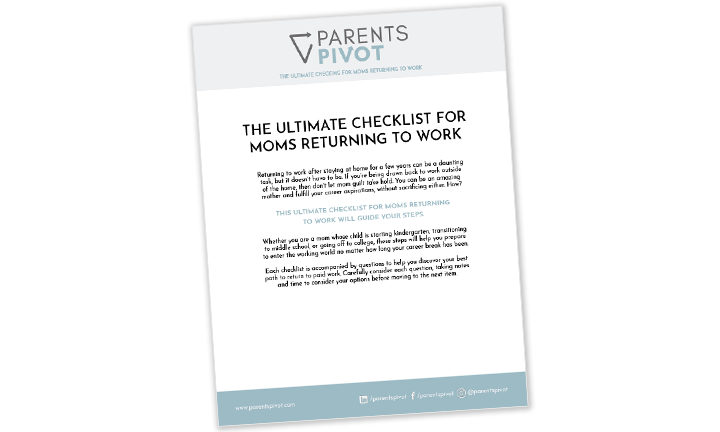Have you created a closer bond with your friends who have all become moms around the same time? If you are like most moms, the answer is a resounding yes! And that is the magic of empathy. Empathy is the ability to understand what others are going through. It brings people together when there may not otherwise be a reason to connect. Empathy is a skill that mothers develop instinctively, and as you consider returning to paid work, it is also a value that is highly marketable as a candidate.
Empathy In Motherhood
In a recent article from mother.ly, one mom took to social media to share about her sleep woes with her four-year-old son. She noticed that those who did not have kids weren’t as empathetic as those who had kids. They withheld the heart emojis and instead responded with things like, “Sleep is overrated” or “you’ll miss this age one day.” Not incredibly helpful in the sleep-deprived moment. Instead of feeling heard and understood, she feels regret for sharing her true feelings.
Even so, her ultimate conclusion is this:
“Becoming a mom has made me even more empathetic to others and made me want to help those around me—even if I don’t personally get what they’re going through. I don’t go around doling out advice left and right, but I certainly listen when a fellow mom is sharing a struggle. And I try to give advice when I think I can help. (Sometimes just sharing your own story when asked is a great way to offer validation to another parent!)”
Empathy In The Workplace
Here’s a workplace equivalent example: you come into the office and notice that one of your coworkers seems distracted and not “on her game” like she usually is. She’s making mistakes that she normally wouldn’t let slip past her. Instead of bubbling with frustration and harboring a “she needs to pull herself together” attitude, you discretely inquire about what might be bothering her. You find out that she has a lot of heavy, personal things going on at home: behavior issues with her kids and her dad’s health is failing. It’s easy for you to understand where she is coming from. You offer to listen as she gets things off her chest and lend a hand with some of her tasks that day to help her overwhelmed mind. The 15 minutes and simple, empathetic gesture turned her day around.
Empathy As A Leadership Skill
“…giving time and attention to others fosters empathy, which in turn, enhances your performance and improves your perceived effectiveness.
Empathy in the Workplace: A Tool For Effective Leadership White Paper from Center for Creative Leadership
People that lack empathy can be difficult to work with, and even more difficult to follow if they are in a leadership role. Empathy grounds you and provides you with the ability to connect with others in a way that inspires, motivates, and lifts them up out of the rut they may be stuck in. A critical part of leadership in any organization is the ability to build and maintain relationships, a skill deeply rooted in empathy.
How To Position Empathy In A Job Interview
So how do you market this mom transferable skill in a job interview or in a cover letter? Here are 3 tips to frame empathy in a way that catches a potential employer’s eye:
You are an active listener. In order to understand how someone is feeling, you have to be willing and practice listening. As an empathetic leader, you are always on the lookout for red flags that may alert you to something being “off.” You know how to respectfully inquire and support others without judgment or condescension. And once people start talking, you actively listen, which quickly builds trust and connection with the other person.
You can foster a multi-perspective community. Not everyone has the same experiences and challenges. But everyone can relate to one another in their own unique way through empathy. You demonstrate how to practice empathy in practical ways by acknowledging the feelings, experiences, and viewpoints of others, even if they aren’t the same as yours. This walk-the-walk attitude is a powerful way to build a team that starts to mimic the same behavior.
You can cultivate compassion. We’ve all heard the old adage, “It’s a dog eat dog world out there.” It’s time to change that, and you are willing to do your part to make a difference. Showing compassion for others on the team instead of encouraging intense, unhealthy competition sets the stage for higher employee satisfaction, improved workplace productivity and collaboration, and overall better work environment.
OTHER MOM TRANSFERABLE SKILLS
Empathy is just one of many transferable mom skills. When preparing your resume, cover letter, and interview talking points, consider other mom skills, such as relationship building, research and problem solving, adaptability and agility, strategic thinking, communication, motivation, and organization. For even more mom skills that transfer to the workplace, click here.




